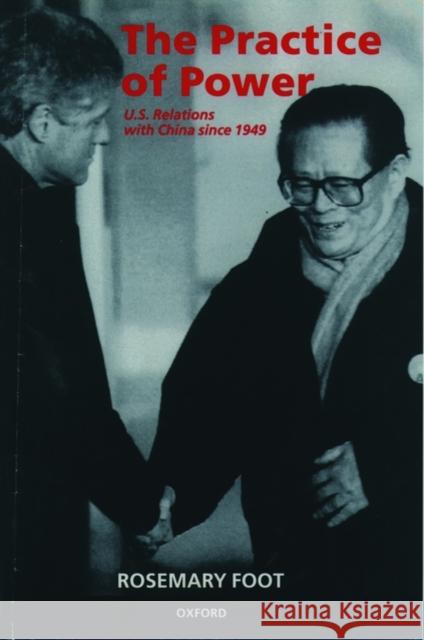The Practice of Power: Us Relations with China Since 1949 » książka
The Practice of Power: Us Relations with China Since 1949
ISBN-13: 9780198292920 / Angielski / Miękka / 1997 / 304 str.
United States policy toward China after World War II presented a uniform front of overwhelming revilement. Today, however, while Chinese human rights violations often make headlines and trade restrictions are periodically threatened, the relationship between the countries is considered "normalized." How has this change taken place?
A solid political history of United States/Chinese foreign relations, The Practice of Power traces the change from hostility to rapprochement, to normalization in 1979, to the current mutually wary cooperation. The major diplomatic issues traversed include United States opposition to Chinese representation at the United Nations, the China Trade Embargo, American public opinion about China, the Sino-Soviet alliance, and China's military capabilities, both conventional and nuclear.
Rosemary Foot shows how, after normalization in 1979, the United States began to move toward viewing China as less of a threat, but still resistant to certain of the norms of the current international order. Previous explanations of American relations with China, Foot argues, have dwelt too single-mindedly on ideas associated with the strategic triangle. Her approach embeds our understanding of the evolution of American relations with China within a wider structure of relationships at the global and domestic levels, and suggests the direction that relations between the two giants will take into the twenty-first century.











